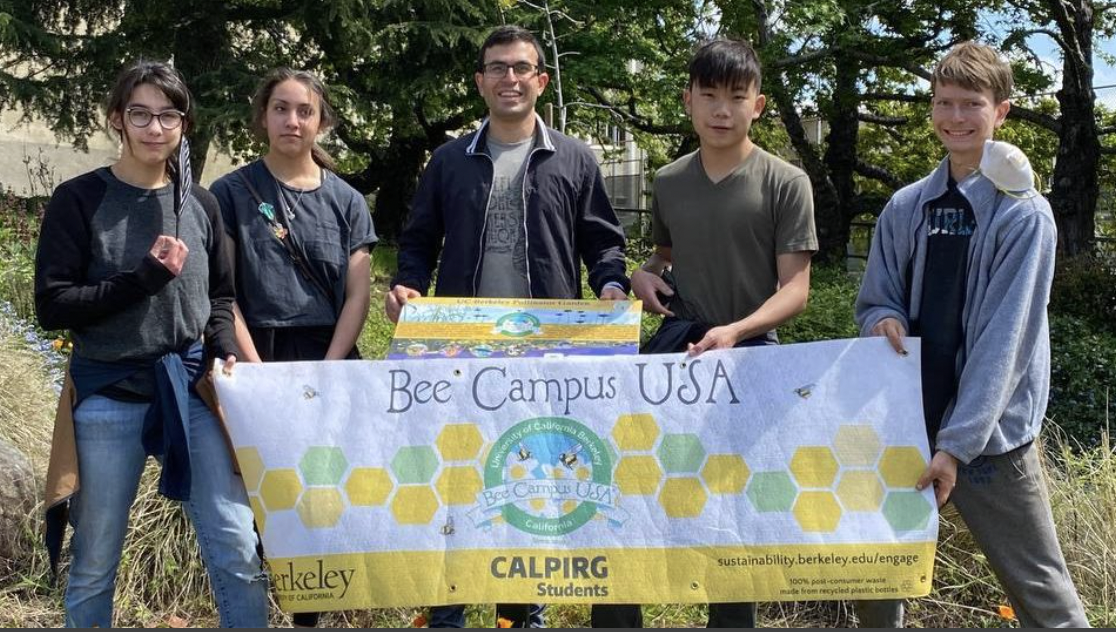Bee Patches Inspiring Youth Leaders: Meet Taylor Rein
Taylor, standing on the far right, volunteered with us as a High School student, then spearheaded a campaign in college to make Berkeley the first in the UC system to join Bee Campus USA
As a child, I used to admire the wonderful chorus in the spring and summertime of the bees visiting flowers, butterflies that graced the backyard with their presence, and the stunning floral display of the Sonoma County countryside. I pay more attention now to the state and condition of the environment around me than ever before because I have often begun to notice irreversible changes led by anthropogenic activities to the landscape. As roads grow wider and buildings become more abundant, the countryside becomes akin to the city. My name is Taylor Rein and I am a third-year, environmental science major at UC Berkeley who remembers his beginnings in activism and environmental campaigns at Conservation Works.
In high school, I participated in an internship with the “Bee Patches” program, one of the many campaigns of Conservation Works. This experience first exposed me to the value of grassroots organizing -- connecting with residents and community members -- to help restore and maintain diverse pollinator gardens. I took this knowledge with me to Berkeley, where I first joined the Save the Bees campaign with a student-run nonprofit, CALPIRG Students. After two years as a volunteer and intern, I finally took the initiative to become full coordinator and since then, I helped recognize UC Berkeley as the 80th Bee Campus in the nation in September 2019, restored three campus gardens with the help of the Entomology Museum and the campus facilities services, and help apply for and receive a grant from the city of Berkeley for $15,000 to aid in park restoration plantings. Of course, all this investment is not without good reason.
As I learned from the Bee Patches program, bees and other pollinators are essential for our environment and a stable food supply. According to the Xerces Society, bees and other insects are responsible for the reproduction of almost 2/3rds of the world’s crops -- from almonds, squash, apples, tomatoes, and even chocolate -- and 90% of flowering plants. California alone is home to nearly 1600 species of native bees among including those which we depend upon for the pollination of our food crops and native flowers.
Conservation Works first gave me the tools and strategies needed to help lead a pollinator conservation effort -- not only through plantings, but also through education, outreach, and service workshops. It will take a tremendous effort if we are going to be able to bring nature back to this new developed landscape. No single individual can accomplish the goal to conserve bees, butterflies, and other pollinators alone, but rather a collective effort amongst local communities, neighborhoods, schools, and even large institutions. That is why I am most grateful for the inspiration Conservation Works has given me to lead this effort and I hope to continue to join forces in the future to protect, restore, and renew. Save the Bees!


